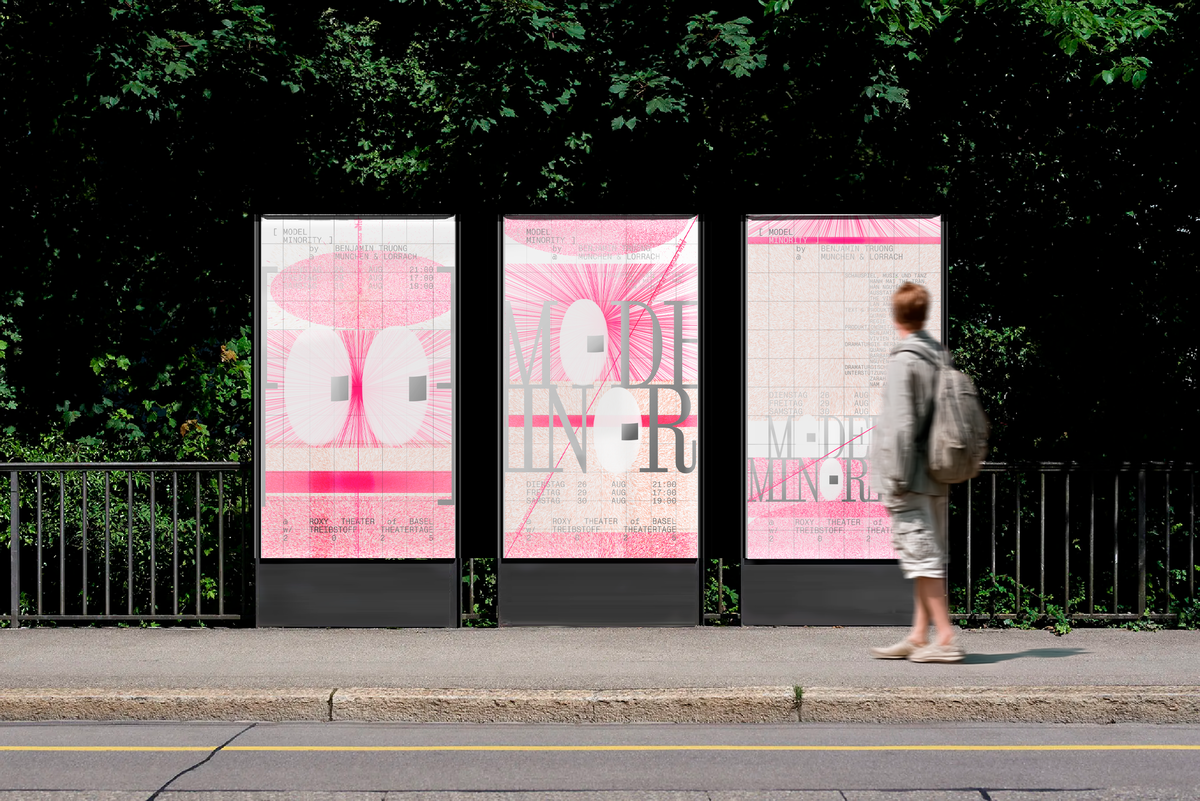Grace Hannah Park
Post-Poster
A Graphic Medium Rewired by Interaction
Studium: MDes International Master of Design
Jahr: 2025
Mentor:innen: Jiri Oplatek, Prof. Bérénice Serra, Invar Torre Hollaus, Ted Davis
Instagram: @www_park_works
Web: https://g-h-p.com
This research repositions the urban poster as a responsive interface, challenging its historical role as a static visual artifact in public space. Traditionally a vehicle for political, commercial, or cultural messages delivered to passive audiences, the poster has become increasingly inadequate in environments shaped by sensors, screens, and data flows.
Drawing on media ecology (Fuller, 2005; Mattern, 2017), second-order cybernetics (von Foerster, 2003), and the aesthetics of interaction (Kwastek, 2013), this thesis explores how posters can evolve into adaptive media systems that respond to human presence and environmental dynamics. Using a research-through-practice approach, it involves prototyping interactive posters with tools such as p5.js, PoseNet, and environmental sensors, and testing them in urban contexts.
Coming from a city with few printed posters, observing the posters fade in sunlight, soak in rain, and engage passersby raised urgent questions – especially as digital screens increasingly replace physical posters. Something essential felt missing in looping visuals.
This led to a series of experiments, including a co-operation with Director Benny Truong and Treibstoff Theatertage Basel. A prototype for Model Minority (2025, theater play) was installed on streets across Basel and at ROXY Theater, enabling live observations of interaction with bodies, gestures, proximity, and ambient shifts.
Rooted in graphic design, this study foregrounds the poster’s graphic and visual translation of interaction, even as it operates at the intersection of interaction design and media art. While sensors have been used in commercial advertising, this research focuses on how sensing technologies can expand the aesthetic, communicative, and temporal capacities of the poster in public space. It ultimately reframes the poster as a living system: a listening, adapting interface that redefines urban experience and contributes to post-digital design and civic media discourse.





